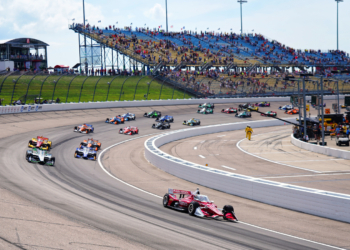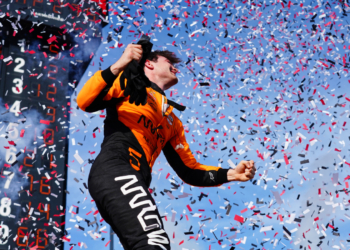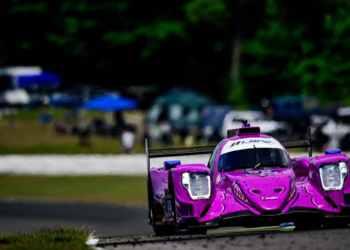James, after three races the team has scored 30 points – you must be pleased with the start to the season?
I think we’ve achieved as much as we could have realistically hoped for because our results have exceeded the current level of competitiveness of the car. We’ve made the most of the opportunities that have been presented to us and we have scored some strong results, which is a great way to start the season.
The team has praised Robert Kubica for his work ethic. In what ways has he re-energised the team?
I’ve been impressed by his attitude and the fact that he is as hungry as we are to get the team back to the front of the grid. He’s constantly asking about the updates we have coming for the car and is incredibly hard-working, which helps motivate the whole team.
Vitaly continues to impress. What is your assessment of his start to the season?
I think his biggest strength is his mental toughness, especially at the key moments. His performance at the start of the races is a good example of that, and also his approach to qualifying where he copes well with the pressure. He has been unlucky not to finish the races, and we feel very sorry that we have let him down twice with car failures that have cost him strong finishes. Every weekend he is getting closer to Robert in terms of pace and I expect that to continue throughout the year. I am confident that when we give him a reliable platform, he will get the job done for us and bring the team points each weekend.
The R30 is very close to Mercedes in terms of performance: can we overtake them in the coming weeks?
I think we can because at the moment they’re only just ahead of us on qualifying pace, whereas we seemed to have the edge on race pace in Malaysia. We will have more updates in China, including a new floor and an alternative front wing. Although this might not be enough to get ahead of Mercedes in qualifying trim, it should move us closer to their tail. And if we can jump ahead of them at the start of a race, I’m confident we have the pace to stay ahead.
How aggressive is this year’s development programme compared to, say, 2009 or previous years?
We have made no secret of our intention to develop our car aggressively during 2010. Aggressive development means having effective ideas and getting them to the track as fast as possible. Our current rate of aerodynamic development is at an all-time high; it’s at least double that of last year. The factory is also pulling out all the stops to get our ideas to the car in around half the time compared with last year.
How much of an asset is the team’s CFD facility in developing the R30? It’s a fundamental component of any aero department nowadays and without it we simply couldn’t develop the car at our current pace. At the moment, CFD-derived projects are providing more than half of the aerodynamic gains that eventually end up on the car.
Does the team have mechanical improvements planned as well as the aero upgrades?
For any F1 team, the design and in-season development of a car is dominated by improvements to the aerodynamics because it has the biggest impact on performance. But there are still many mechanical projects underway, such as suspension and brake developments. They don’t grab the headlines because they are usually an accumulation of many dozens of small things and are not as visible as an aerodynamic upgrade.
Talk us through the technical challenge presented by the circuit in Shanghai and how the R30 is likely to perform there?
The biggest difference we can expect in Shanghai is that it will bring much cooler conditions than Malaysia and Bahrain. We will have to ensure that we can make the tyres work well in the cool temperatures. We hope to take another small step towards the front in Shanghai and I think a realistic goal for the weekend is to get both drivers to bring home points.






